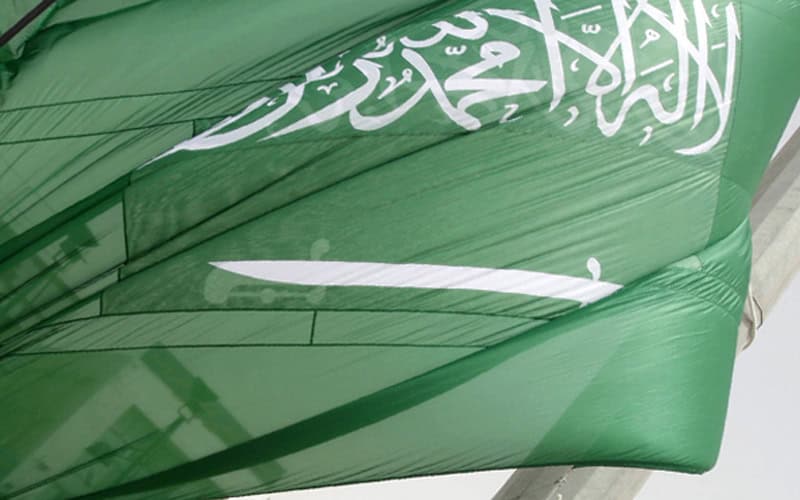Midi, Yemen: Standing amid the bullet-pocked ruins of a once rebel-controlled Yemeni district, Saudi officials unveil their latest multi-million dollar aid projects, seeking to blunt global criticism over a worsening humanitarian crisis.
While leading a military coalition since 2015 against Iran-aligned Huthi rebels, Saudi Arabia is also ramping up aid projects across its southern neighbour — from schools to greenhouses and desalination plants — amid international pressure to end the conflict.
The coalition’s bombing campaign is blamed widely for pushing Yemen into what the UN calls the world’s worst humanitarian crisis, with thousands of Yemenis killed and millions struggling to feed themselves.
But pursuing development projects in tandem with war is a strategy that Saudi officials say is aimed at cultivating local goodwill while making Yemenis self-reliant in a moribund economy, even as activists question their effectiveness.
Last month, officials from the Saudi Development and Reconstruction Program for Yemen (SDRPY) — established in May 2018 to lead this strategy — drove across the southern Jizan border into the coastal Yemeni district of Midi to launch projects they said were worth around $7 million.
Escorted by soldiers who repeatedly warned against walking astray in an area riddled with mines, the officials held a groundbreaking ceremony for 11 projects including a new school, health centre and a desalination plant to tackle rampant waterborne diseases.
“These projects are an extension of the large and many projects carried out by Saudi Arabia in the brotherly (nation of) Yemen,” SDRPY projects director Hassan al-Attas told AFP.
It was unclear when the projects will be completed.
– ‘Mines are everywhere’ –
Midi, which bears signs of cataclysmic devastation after Huthi rebels were expelled in April last year, looks in need of a massive reconstruction and demining effort before the projects can be sustainable.
Thousands of Midi’s residents who fled the fighting fear returning to the wasteland of flattened buildings, rubble-strewn promenades and scorched vehicles.
Ravaged boats and a fear of Huthi naval mines have crippled the fishing industry, the local mainstay.
“Mines are everywhere,” said Abdul Fattah, a 46-year-old teacher who now lives in Jizan.
“People will return once the mines are removed, after the houses are rebuilt… once health, education, electricity and water are provided.”
Midi is located in conflict-ridden Hajjah governorate, vast swathes of which remain under rebel control.
Despite assurances from officials that Midi was safe, a Saudi TV crew’s attempt to report live on the ceremony caused jitters among other journalists who warned it could give away their location and prompt the rebels to fire rockets.
– ‘Bad to worse’ –
Saudi Arabia and the UAE, another leading member of the coalition, count themselves as the largest donors to Yemen, having provided more than $18 billion since 2015.
Riyadh says it alone has offered around $12 billion.
“All of this money has been pumped into Yemen, and the standard of living, health, and economy in Yemen is still going from bad to worse, creating questions about the effectiveness,” Yemeni activists said in a change.org petition demanding accountability for all aid pouring into Yemen.
However generous, the Gulf assistance does not make up for the losses Yemen has endured.
A UN Development Programme study last month said Yemen’s conflict, the most destructive since the end of the Cold War, will result in economic losses of $88.8 billion if it ends this year.
That figure could rise exponentially if the war is further prolonged.
“Even if there were to be peace tomorrow, it could take decades for Yemen to return to pre-conflict levels of development,” said UNDP’s Auke Lootsma.
– ‘Hearts and minds’ –
Many also question the viability of Saudi projects before the end of the war, which has destroyed much of Yemen’s already-crumbling infrastructure.
The Saudi blockade of many of Yemen’s ports — ostensibly to stop Iranian arms from entering Yemen — has hindered much-needed humanitarian aid, relief workers say.
“The Yemenis that I am in touch with see the Saudi intervention as disproportionately aggressive, self-serving, and politically naive,” Sarah Phillips, a Yemen expert at the University of Sydney, told AFP.
“The notion that the Saudis and the UAE will win ‘hearts and minds’ by providing reconstruction assistance or aid to fix a humanitarian crisis they are instrumental in sustaining is widely treated with derision.”
Saudi officials reject such criticism, saying it overlooks Huthi crimes.
But Yemenis in some areas are also questioning whether the Saudis are using the projects to further entrench themselves militarily.
While funding schools and clinics in Yemen’s eastern-most governorate of Al-Mahra, the Saudis installed significant military personnel and equipment, fuelling suspicion about their motives, said Elisabeth Kendall, a research fellow at Oxford University who frequently visits the area.
“There are some positives associated with the new Saudi presence,” Kendall told AFP.
“Investment in this long-marginalised area is much needed. But many locals now refer to a ‘Saudi occupation’.”
[source_without_link]AFP[/source_without_link]

